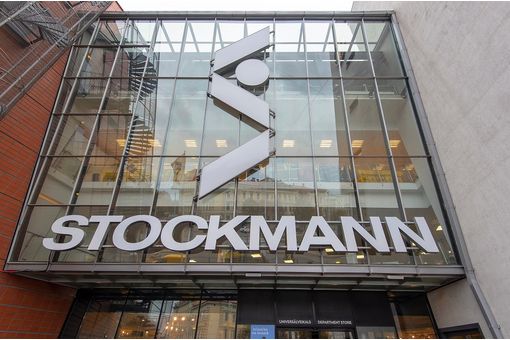Interviews
IMF: Cambodian economic growth to slow in 2009
10 Nov '08
4 min read
"An IMF mission from Washington, D.C. visited Cambodia October 23 to November 7, 2008 to conduct the Article IV discussions.
During the visit, the mission took stock of recent economic and financial developments and held policy discussions with ministers and senior officials of the Royal Government of Cambodia on their macroeconomic, financial and structural policies.
The mission also met representatives from the business community, Cambodia's development partners, research think-tanks, labor unions and non-governmental organizations.
"Following several years of very strong performance, Cambodia's economy faces a number of challenging headwinds. After a robust start, growth momentum eased over the course of 2008, and more recently, the economy has begun to experience adverse effects from global financial stress.
Garment exports and tourist arrivals are slowing, reflecting a rapid downturn in key trading partners' economies, as well as a strain on Cambodia's competitiveness due to the significant recent appreciation of both the riel and U.S. dollar combined with high domestic inflation. Construction activity and foreign investment are slowing from high levels, also partly as a result of tighter global liquidity conditions. These factors are expected to lead to an easing in growth to 6½ percent in 2008, and a further slowing in 2009 to around 4¾ percent.
"Inflation increased sharply in the first half of 2008 reflecting higher oil and food prices, the weakness of the U.S. dollar, and domestic demand pressures. However, a reversal in these factors in the second half of 2008, led by lower oil prices, should result in a decline in headline inflation from a peak of about 26 percent year-on-year in May to around 15½ percent by year end. With domestic demand pressures projected to ease, inflation should continue trending downward next year.
"The external current account deficit (including official transfers) is estimated to have widened significantly in 2008, to 12¼ percent of GDP, reflecting the impact of higher oil prices and strong imports fueled by domestic demand. Given strong inflows in the first half of 2008, gross international reserves rose to about $2.2 billion at end-September 2008.
For 2009, the current account deficit is expected to decline to around 8 percent of GDP as the impact of lower oil prices and slowing import demand more than offsets weaker garment exports and tourism.
"The mission commended the authorities for maintaining steady budget implementation, particularly through the election period. Government revenues further increased in 2008 and are projected to reach 12½ percent of GDP, due mainly to continued improvements in tax administration. Expenditure has been maintained in line with the budget target, leading to a decline in the overall government budget deficit (excluding grants) from 3 percent of GDP in 2007 to about 2 percent in 2008.
"Fiscal policy discussions centered on the appropriate response to the projected slowdown in economic activity in Cambodia. The mission considered that, given weakening growth prospects and a projected reduction in inflation pressures, some countercyclical easing of fiscal policy would be warranted in 2009.
During the visit, the mission took stock of recent economic and financial developments and held policy discussions with ministers and senior officials of the Royal Government of Cambodia on their macroeconomic, financial and structural policies.
The mission also met representatives from the business community, Cambodia's development partners, research think-tanks, labor unions and non-governmental organizations.
"Following several years of very strong performance, Cambodia's economy faces a number of challenging headwinds. After a robust start, growth momentum eased over the course of 2008, and more recently, the economy has begun to experience adverse effects from global financial stress.
Garment exports and tourist arrivals are slowing, reflecting a rapid downturn in key trading partners' economies, as well as a strain on Cambodia's competitiveness due to the significant recent appreciation of both the riel and U.S. dollar combined with high domestic inflation. Construction activity and foreign investment are slowing from high levels, also partly as a result of tighter global liquidity conditions. These factors are expected to lead to an easing in growth to 6½ percent in 2008, and a further slowing in 2009 to around 4¾ percent.
"Inflation increased sharply in the first half of 2008 reflecting higher oil and food prices, the weakness of the U.S. dollar, and domestic demand pressures. However, a reversal in these factors in the second half of 2008, led by lower oil prices, should result in a decline in headline inflation from a peak of about 26 percent year-on-year in May to around 15½ percent by year end. With domestic demand pressures projected to ease, inflation should continue trending downward next year.
"The external current account deficit (including official transfers) is estimated to have widened significantly in 2008, to 12¼ percent of GDP, reflecting the impact of higher oil prices and strong imports fueled by domestic demand. Given strong inflows in the first half of 2008, gross international reserves rose to about $2.2 billion at end-September 2008.
For 2009, the current account deficit is expected to decline to around 8 percent of GDP as the impact of lower oil prices and slowing import demand more than offsets weaker garment exports and tourism.
"The mission commended the authorities for maintaining steady budget implementation, particularly through the election period. Government revenues further increased in 2008 and are projected to reach 12½ percent of GDP, due mainly to continued improvements in tax administration. Expenditure has been maintained in line with the budget target, leading to a decline in the overall government budget deficit (excluding grants) from 3 percent of GDP in 2007 to about 2 percent in 2008.
"Fiscal policy discussions centered on the appropriate response to the projected slowdown in economic activity in Cambodia. The mission considered that, given weakening growth prospects and a projected reduction in inflation pressures, some countercyclical easing of fiscal policy would be warranted in 2009.
Popular News
Leave your Comments
Editor’s Pick
































-Ltd..jpg?tr=w-120,h-60,c-at_max,cm-pad_resize,bg-ffffff)





.jpg?tr=w-120,h-60,c-at_max,cm-pad_resize,bg-ffffff)
.jpg?tr=w-120,h-60,c-at_max,cm-pad_resize,bg-ffffff)






